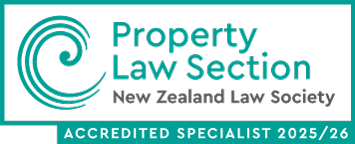Wednesday 19 May 2021
The NZ Government has announced a reform of the Work Visa system from 1 November 2021.
There is currently a couple of pathways to residency for employees who do not have sufficient English to apply for residency under the Skilled Migrant Category. Those pathways will close from 1 November 2021.
This is the last opportunity to take advantage of these pathways. There are no equivalent pathways indicated for non-English speakers after 1 November 2021.
The Talent (Accredited Employer) work to residency pathway is open until 31 October. No minimum English requirement is applicable under this pathway. To utilise this, you must apply for Talent (Accredited Employer) accreditation by 30 June 2021. In order to do that, you must demonstrate:
The employee that you are looking to offer the work to residency pathway must also be earning at least $38.25 per hour or $79,560 per annum on a 40-hour week basis. This is 1.5 times the median wage in NZ.
Assuming that you are able to obtain the Talent (Accredited Employer) status, your employee will be able to apply to work towards residency, so long as their pay is above the threshold mentioned above. Their Talent (Accredited Employer) Work Visa will last for 30 months. After 2 years, they will be eligible to apply for residency. They must stay with you for the two years to be eligible to apply for residency.
All applications for Talent (Accredited Employer) Work Visa must be submitted prior to 31 October 2021. If they are able to obtain the Talent (Accredited Employer) Work Visa, their pathway to residency remains even though the work visa regime will change after 1 November.
The above process obviously has a cost to it for the employer. You would only do that for an employee who is valuable and committed to your business. We do recommend that before committing to the expense that you put in place a restraint of trade or a bond requirement to secure your employee. We are happy to advise you on that.
We have successfully applied for the above for clients of ours. If you are interested, you should talk to us as soon as possible.
Again, no minimum English requirement is applicable for the employee in this pathway.
To qualify for this pathway, the employee must be employed full time in one of the occupations on the LTSS list and meet the requirements for the occupation on the list.
Most of the occupations on the list requires registration such as in the construction, engineering, medical and health professionals, and certain trades. The following are notable exceptions:
--Chefs
--Specialist Film Animators
--Automotive Electrician
--Diesel Motor Mechanic
However, the employees must still meet the requirements for the relevant occupation on the list. They must also be paid at least $45,000 per annum.
If you believe you or one of your employees meet these requirements, please contact us as soon as possible for advice.
Teresa Chan
May 2021
This article is for general use only. Advice should be sought for specific circumstances. Please consult Teresa Chan at Teresa Chan Law Limited, Level 3, Westpac Building, 106 George Street, Dunedin 9016, ph. 477 1069, or email teresa@tchanlaw.co.nz
KEYWORDS: English test, Work to Residence, Pathways to residence

